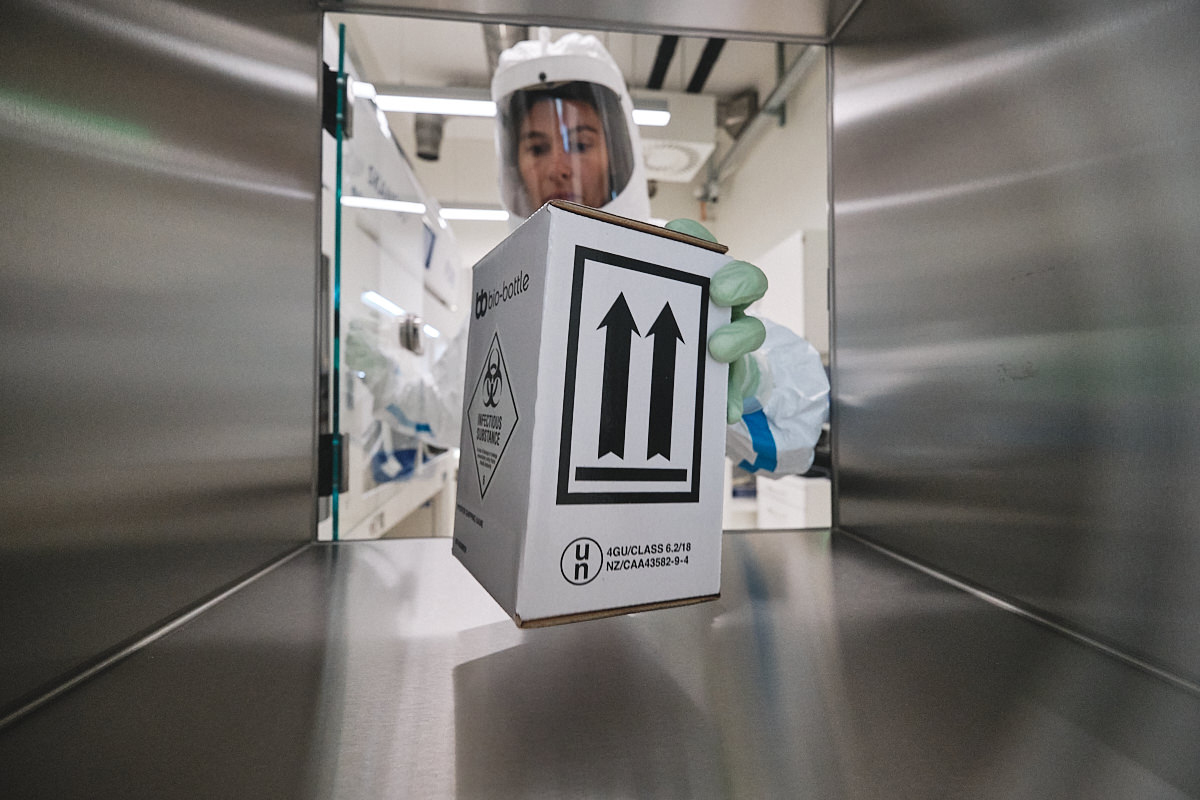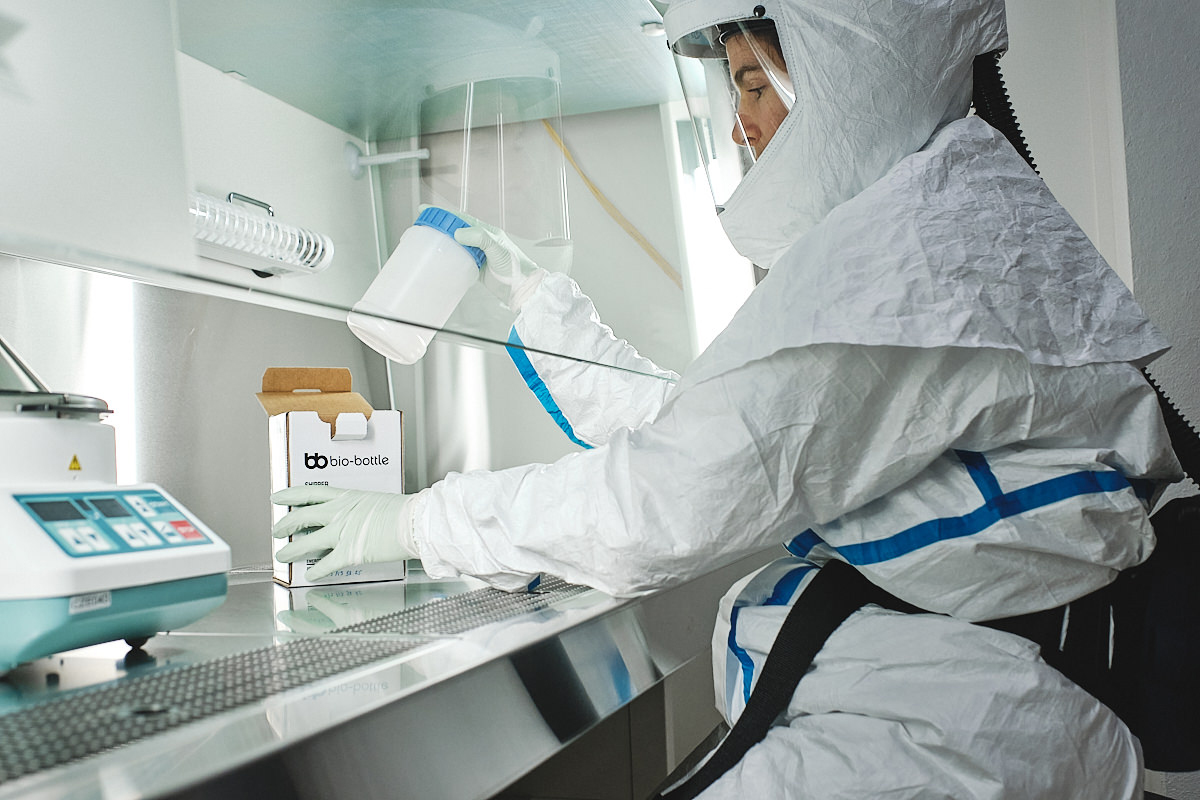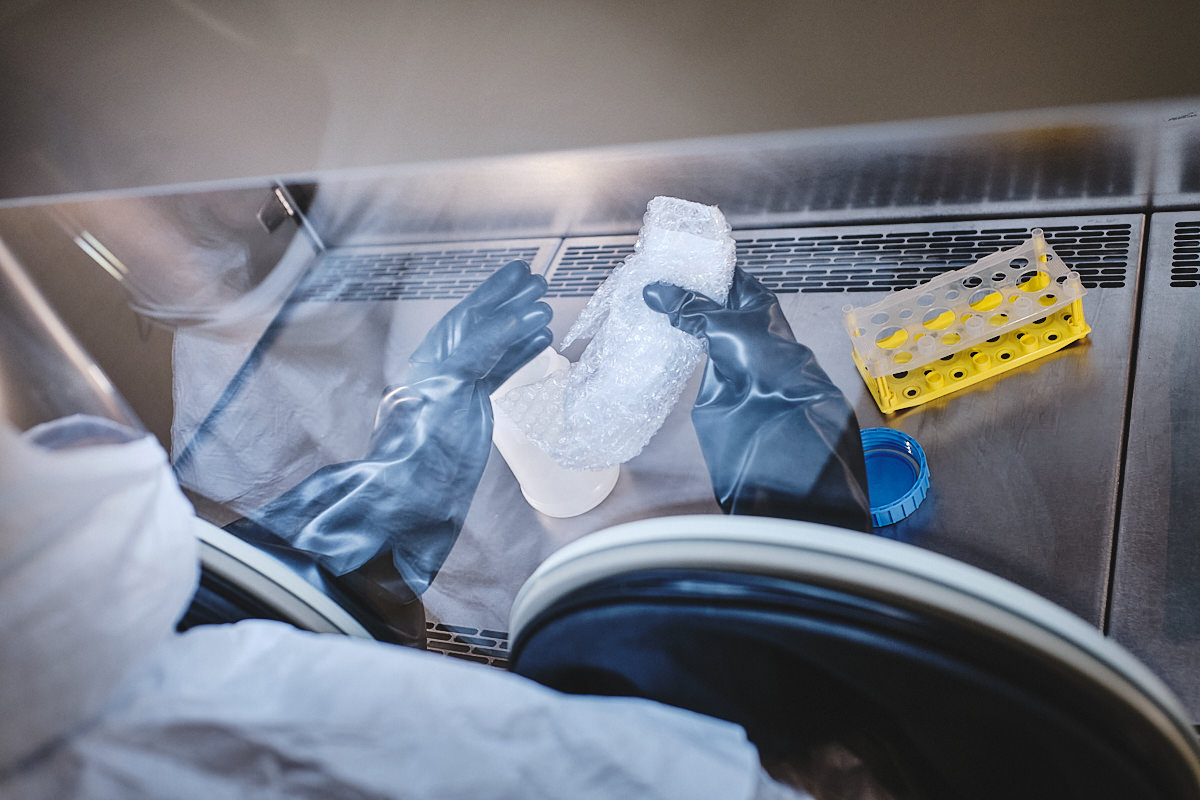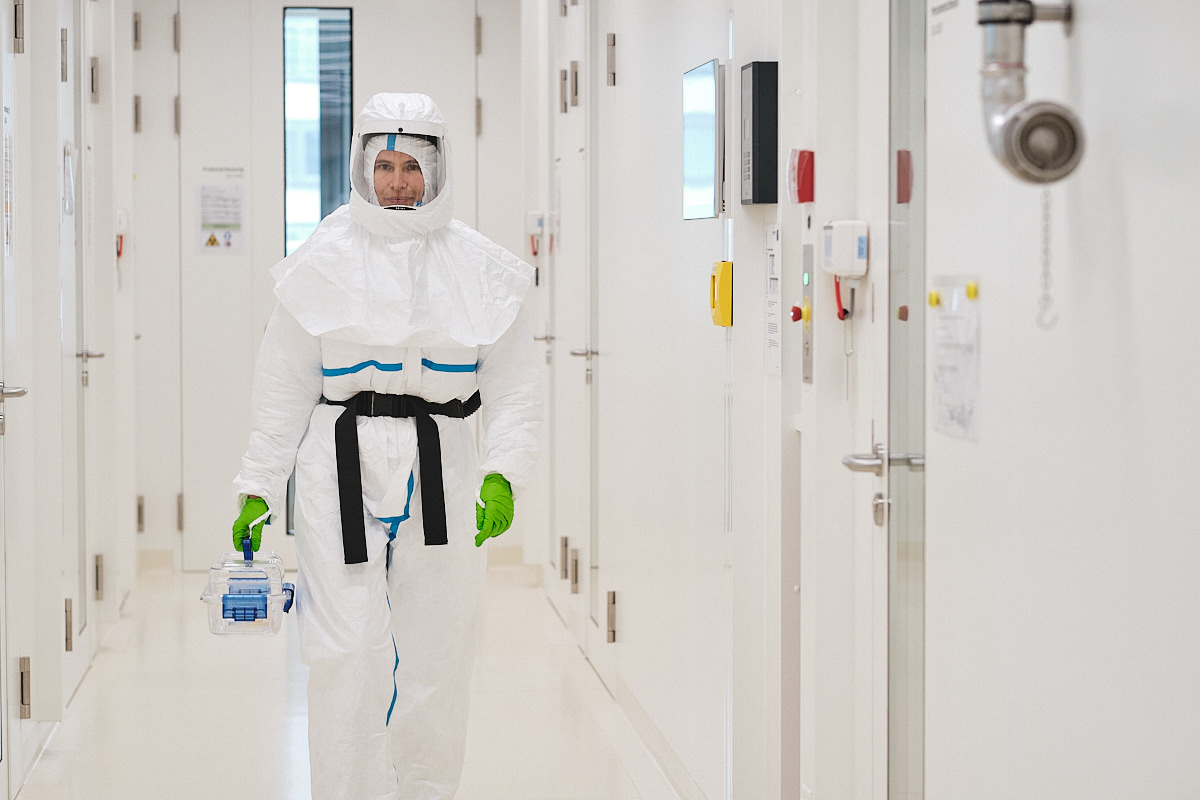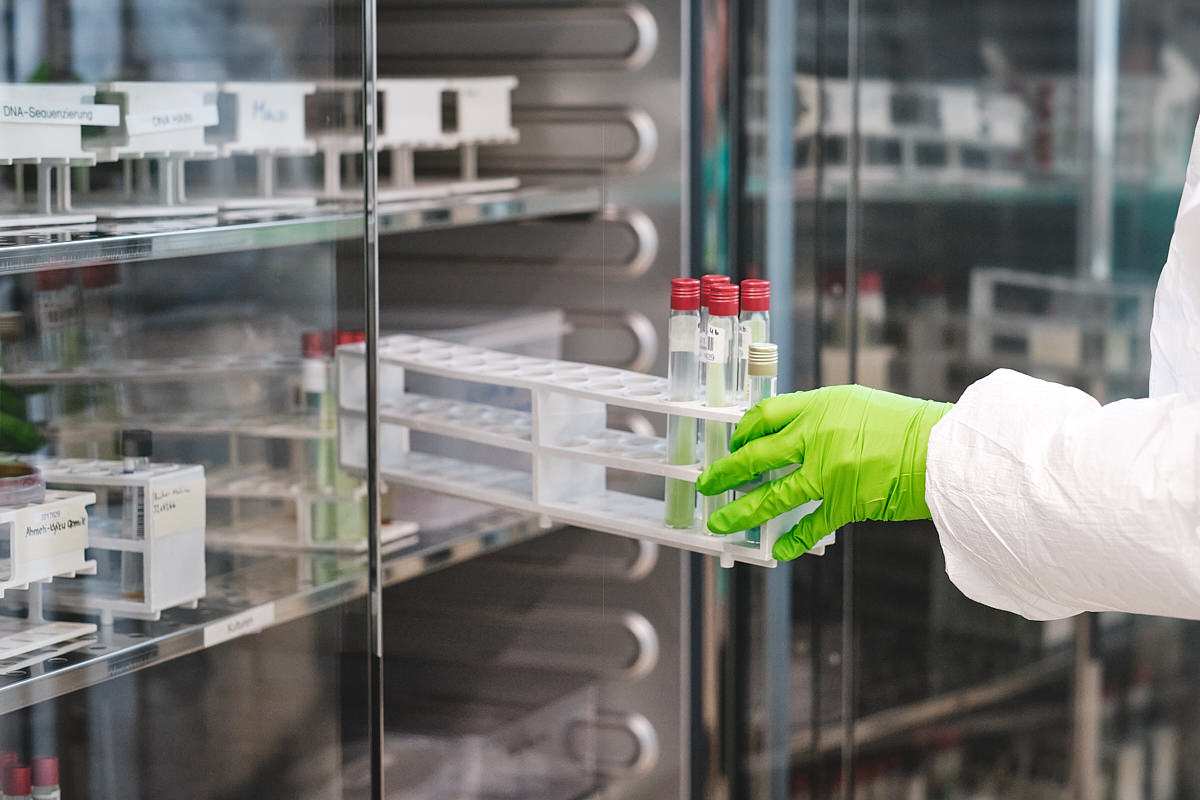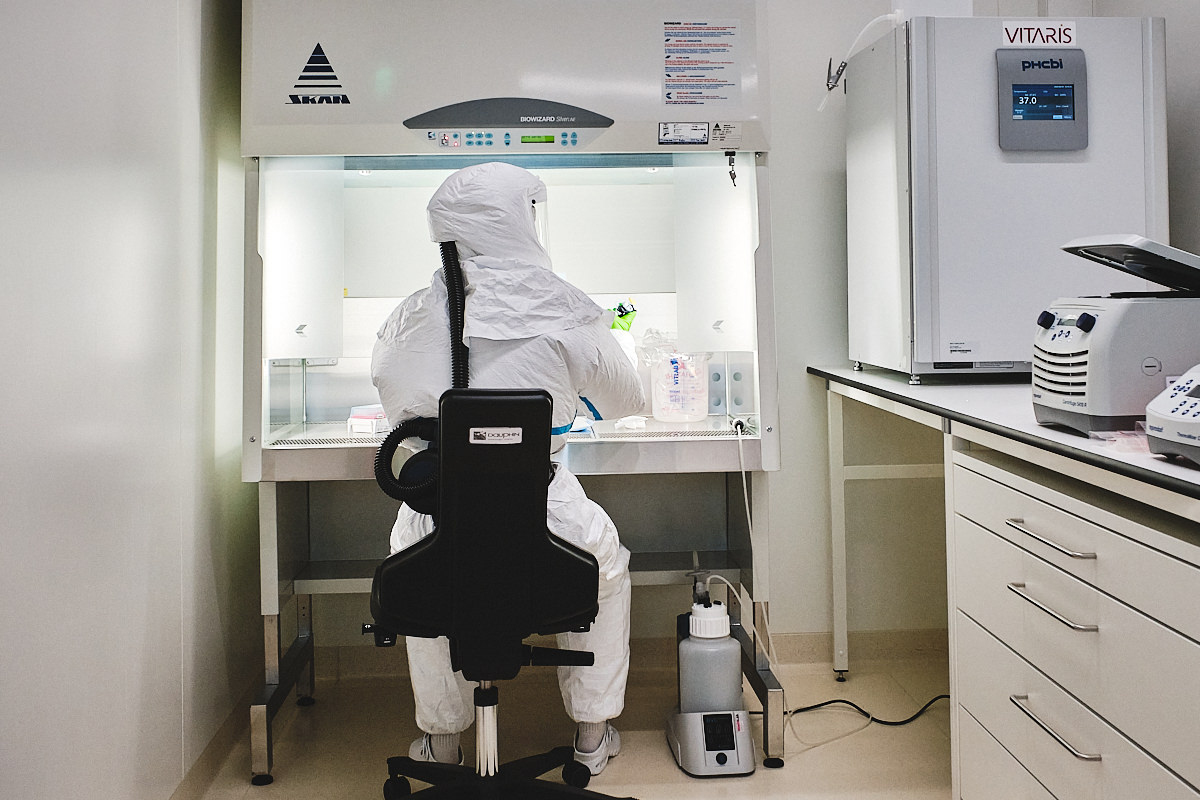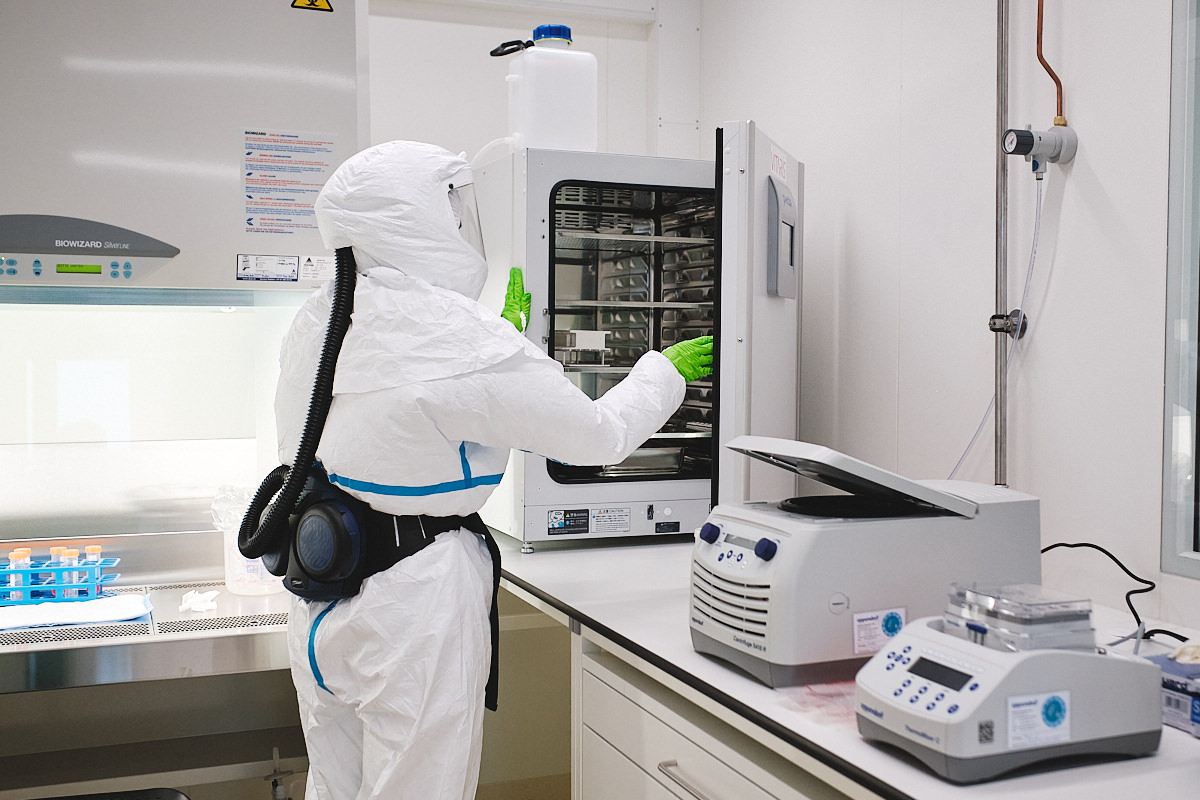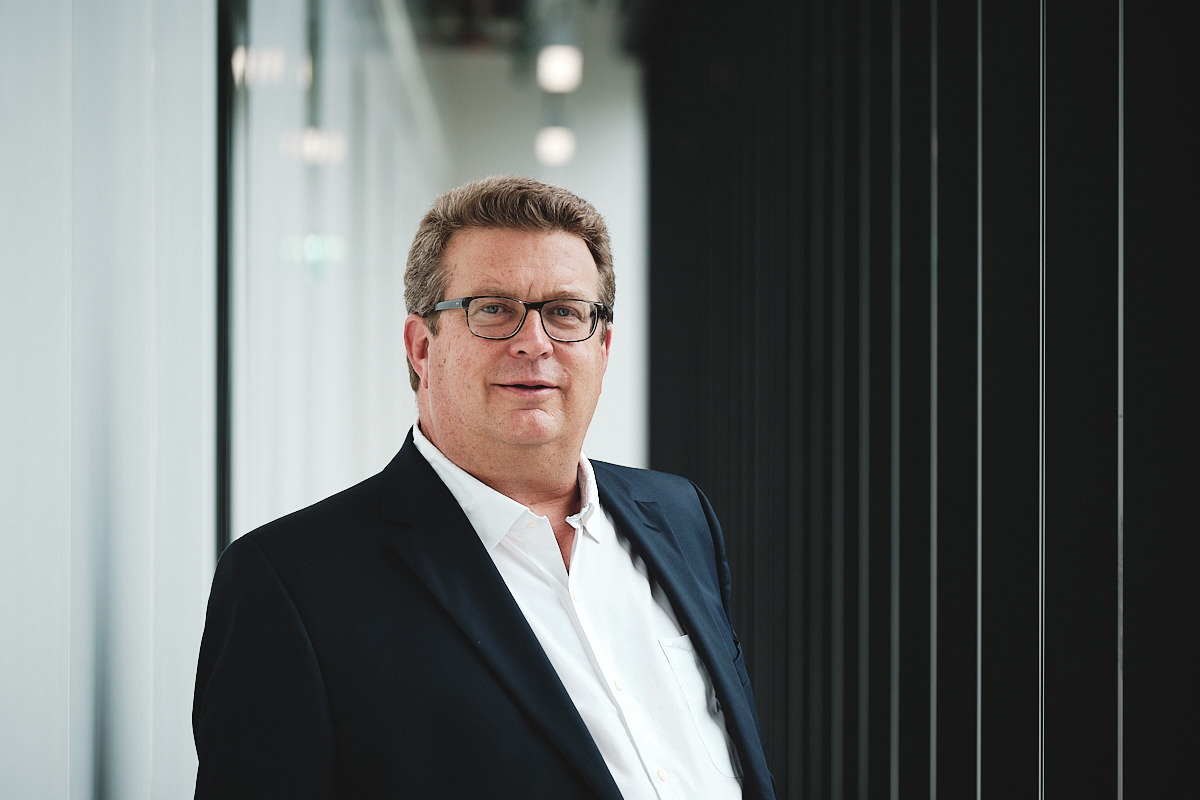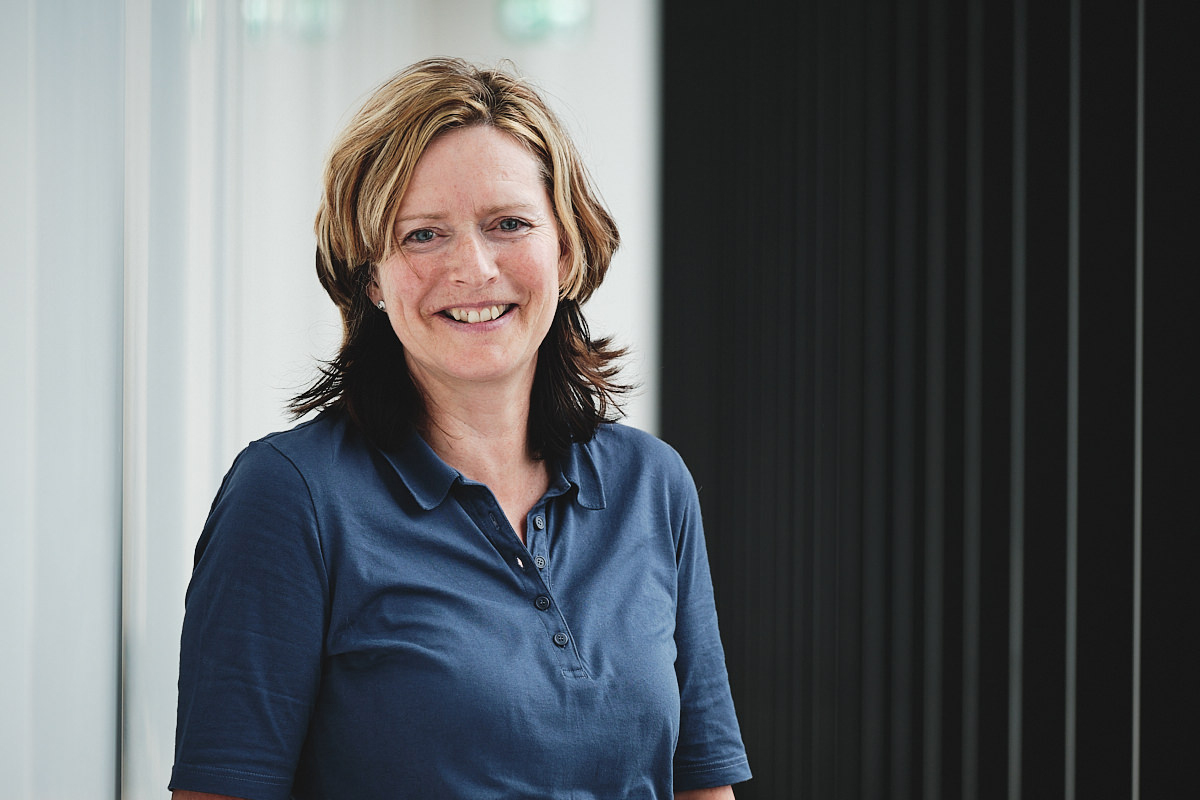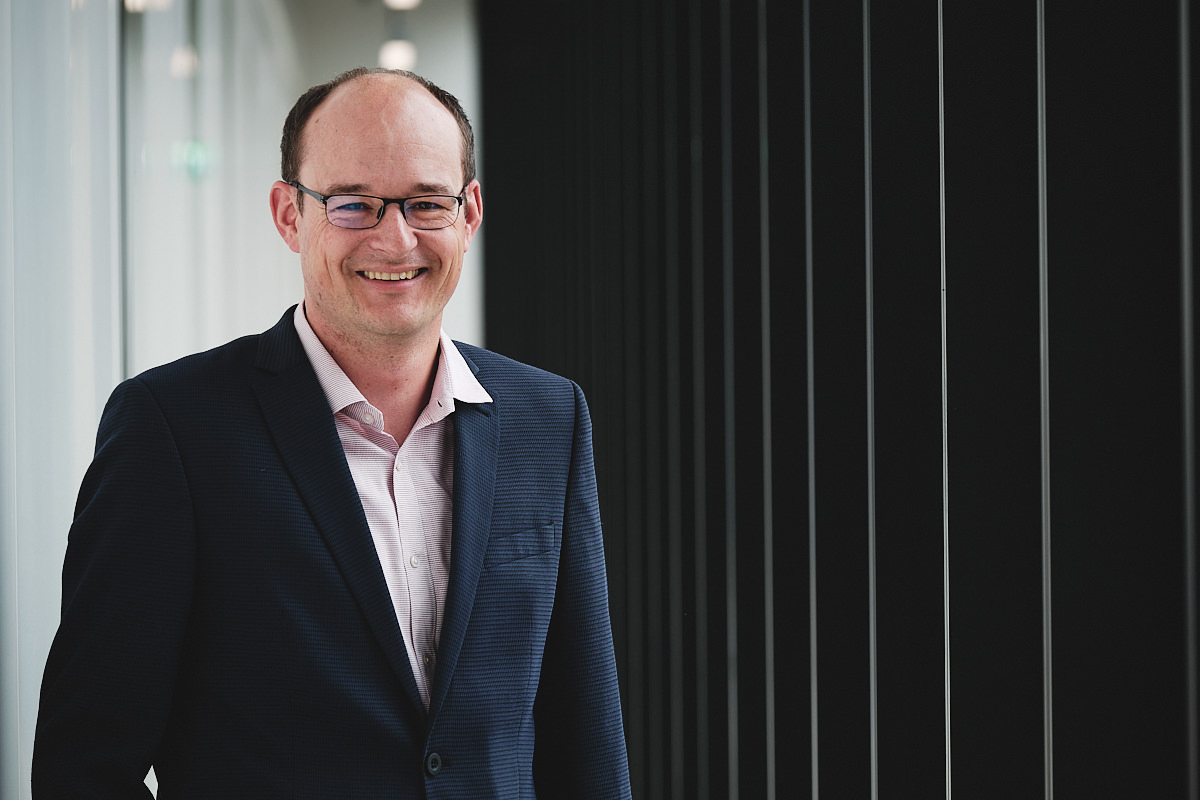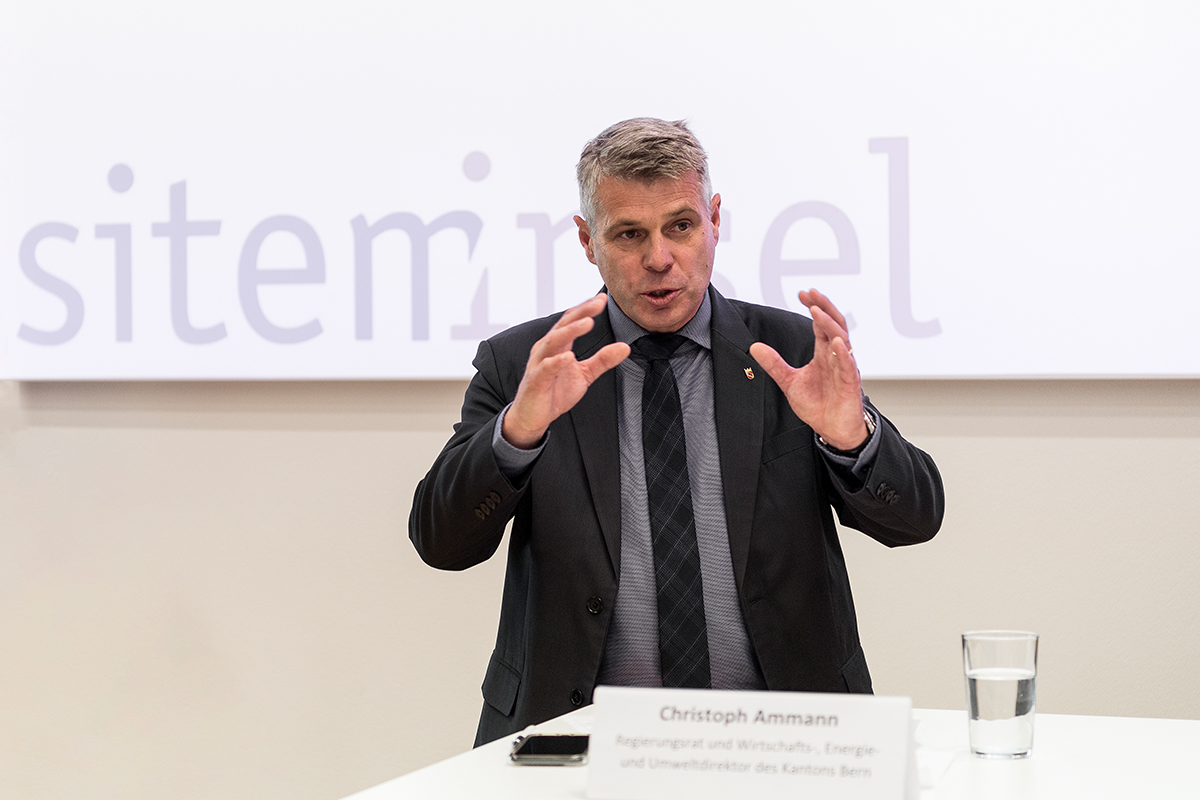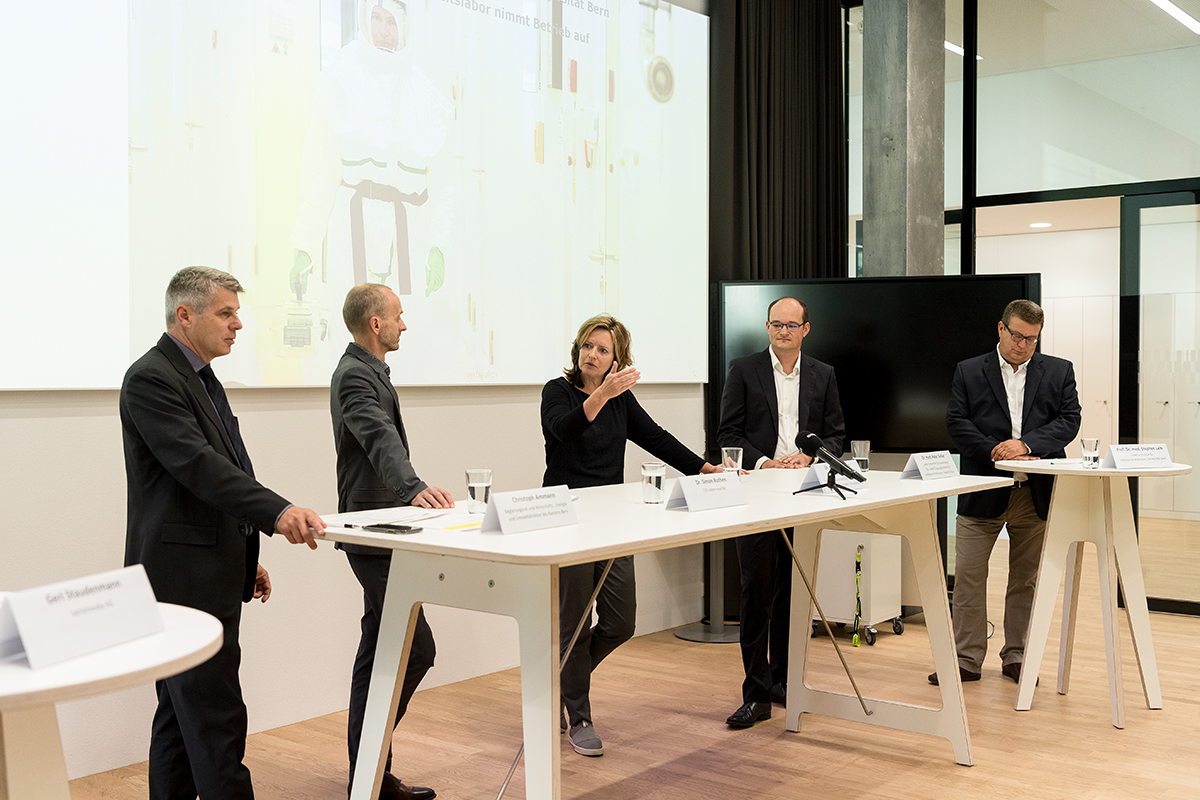Unique biosafety laboratory in Switzerland up and running
The new BSL-3 biosafety laboratory at the University of Bern Institute of Infectious Diseases (IFIK) went into operation today in the presence of Member of the Governing Council Christoph Ammann. The laboratory is located in the Swiss Institute for Translational and Entrepreneurial Medicine (sitem-insel) building. It is nationally one of the largest and the only BSL-3 laboratory in Switzerland to combine diagnostics, research and translation under one roof.
Bacteria or viruses that are highly infectious and for which no therapy or vaccination is available are examined under the strictest safety measures in a biosafety level 3 (Biosafety Level / BSL-3) laboratory. Human pathogens will be examined and researched in future in Switzerland's newest biosafety laboratory, and findings from research will be transferred into products and therapies in the spirit of translational medicine.
The new biosafety laboratory at the University of Bern Institute for Infectious Diseases in the sitem-insel building was completed on time despite the corona crisis and is now going into operation as planned. "I would like to thank all those involved for their great achievement and extraordinary commitment during difficult times," said Christoph Ammann, Canton of Bern's Director of Economic, Energy and Environmental Affairs, at today's media conference. "With the new laboratory, Bern has a state-of-the-art infrastructure and the internationally recognized expertise at the University of Bern Institute of Infectious Diseases (IFIK) will be strengthened further."
Expansion of Bern as a center of medicine
"For Bern, the new BSL-3 biosafety laboratory in sitem-insel is another important milestone in its expansion and further development as a center of medicine," Ammann continued. The "Insel" campus with university hospital is the ideal platform for networking between clinics, business and research. The Bern government has declared this networking to be one of five strategic goals in the 2019 to 2022 government policy. "Close cooperation between research and industry will help ensure that Bern develops into Switzerland's leading center of medicine with international appeal," Ammann is convinced. In addition to sitem-insel AG, the Swiss Center for Design and Health AG and the major investments planned by the canton and university hospital on the "Insel" campus are to contribute to this development.
Unique in Switzerland: Collaboration with external partners
The integration of the biosafety laboratory into the sitem-insel building offers several advantages, explained Simon Rothen, CEO of sitem-insel: "It combines state-of-the-art infrastructure for research and diagnostics and therefore contributes to taking ideas from research and getting them to patients as quickly as possible." sitem-insel offers public as well as private institutions and companies the opportunity to implement scientific and innovative projects using the translational approach. "The fact that a BSL-3 biosafety laboratory is open to both research and industry is unique in Switzerland," said Rothen. Within this framework, sitem-insel is open to all projects whose work requires BSL-3 classification, both public and private. These can be universities, universities of applied sciences, start-ups or companies, both throughout Switzerland and international.
Laboratory as a hub
The Bern region has the densest concentration of institutions in Switzerland with infrastructure and expertise in dealing with emerging and high-risk infectious diseases, such as the Federal Office for Civil Protection's Spiez Laboratory or the University of Bern Veterinary Institute of Virology and Immunology and the Federal Food Safety and Veterinary Office in Mittelhäusern. The space provided by the new laboratory opens up new opportunities on the Bern site: "The new laboratory acts as a hub between partners in health care, environmental diagnostics and veterinary medicine to successfully research emerging and highly contagious infectious diseases, and develop new products and therapies," said Prof. Stephen Leib, Director of the IFIK. The safety level 3 laboratory can be used by external partners for research and development, like testing vaccines for their effectiveness.
Biosafety center ensures safe operation
The same high safety standards are applied in the external user area as in the main IFIK laboratory. This is guaranteed by the IFIK's Biosafety Center in the sitem building. The center has closely monitored the construction of the new BSL-3 laboratory and is responsible for its safe operation. The head of the Biosafety Center, Dr. Kathrin Summermatter, has decades of experience in operating safety laboratories and is the only expert in Switzerland with a mandate from the WHO to inspect laboratories in the USA and Russia that work with the highly infectious smallpox viruses. "Safety in compliance with the legal requirements is the top priority for such a laboratory and is ensured by various systems, such as several airlocks or double-guided ventilation," explains Summermatter. This is like an onion with different skins, with the core as the most protected area.
Research projects on Sars-CoV-2 planned
The BSL-3 laboratory also has a special area for diagnostics in the form of a so-called glove box. This special safety workbench with integrated rubber gloves allows suspicious patient samples to be processed. However, it is mainly used to work with tuberculosis pathogens or, in future, also with Sars-CoV-2. "The special thing about our laboratory is that we can not only detect the new corona virus here, but also cultivate it, for example to see whether it is still infectious in a patient even after weeks," says Dr. Peter Keller, Head of Innovation and Development at the IFIK. Several research projects are being planned in Bern, which will focus, among other things, on immunity to Sars-CoV-2 or its effects on the vessels and organs.
Working at the new BSL-3 laboratory in sitem-inselThe laboratory has a floor space of 230m2 and consists of the IFIK rooms and rooms of sitem-insel that can be rented. Eight people can work at the same time in the IFIK area, and a maximum of four in the area that can be rented. It is therefore one of the largest of its kind in Switzerland. The technology and procedures necessary for operation at safety level 3 are very complex, such as passing through locks and putting on protective equipment. For people working in a BSL-3 laboratory, this usually takes up at least 30% more time compared to working in a standard safety level 2 laboratory. External users must have laboratory experience at least at BSL Level 2, are introduced and closely supervised by employees of the Biosafety Center before they are allowed to work independently in the rented area. Like all researchers, they must also have the necessary permits, for example from the Federal Office of Public Health (FOPH), and comply with legal requirements for their project in translational medicine. The new laboratory fills a gap in the Bern region by making biosafety level 3 laboratory space available to human researchers from public or private institutions. |
2020/06/16

